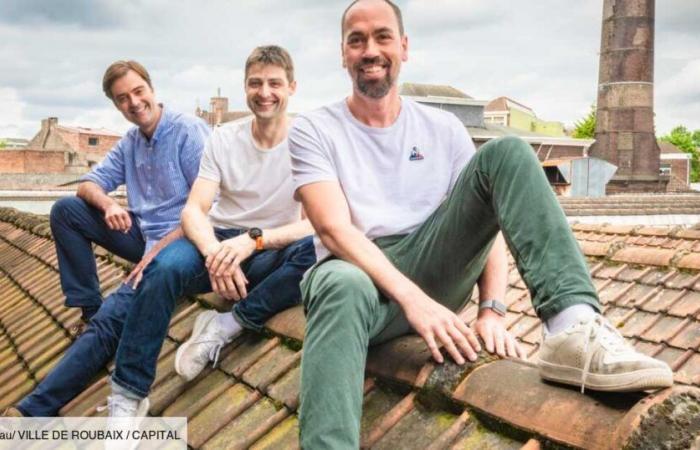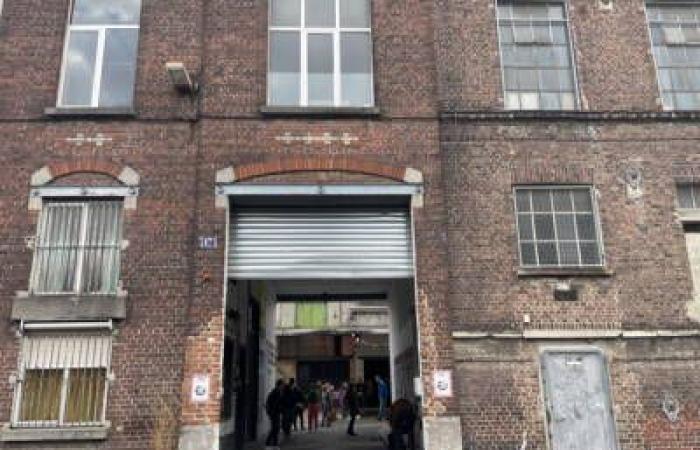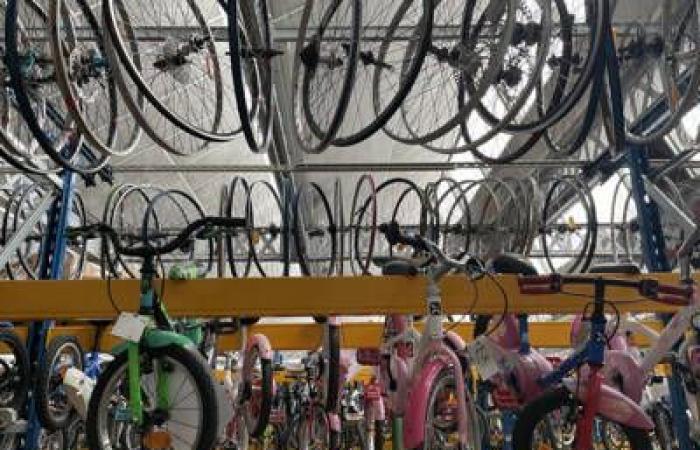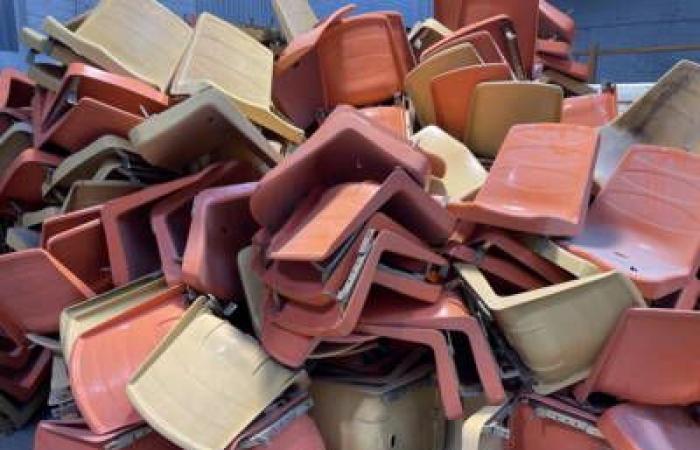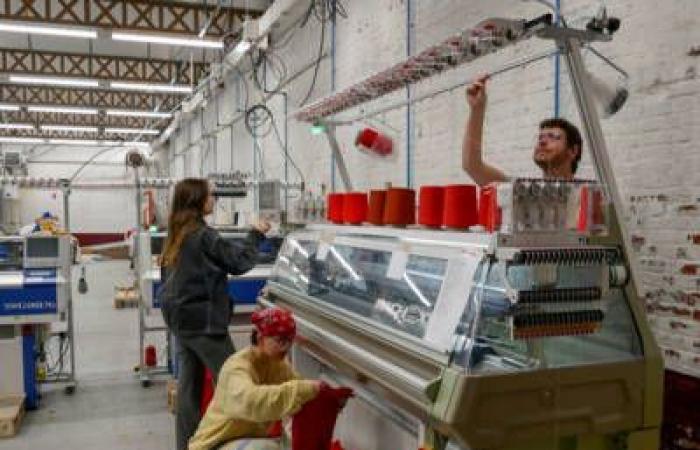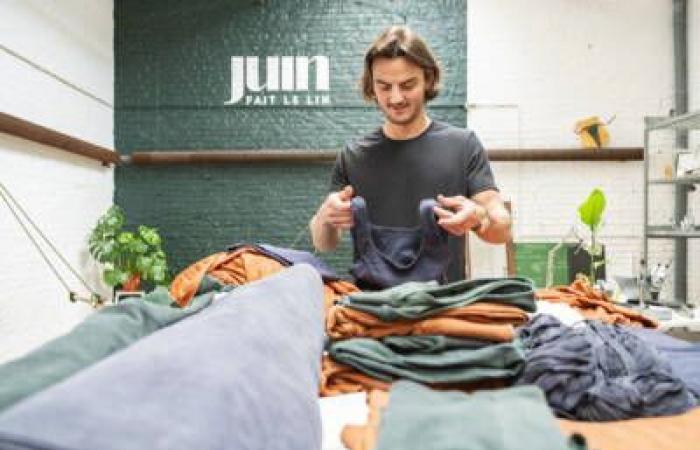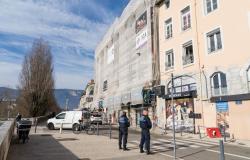© Anais Gadeau/ CITY OF Roubaix
– Dimitri Broders, Matthieu Reignier and Mathieu Beseme developed this third place in a former factory.
17, rue du Nouveau-Monde. The address sounds like a promise, but in Roubaix, in the Nord department, it takes on the appearance of a challenge. The hours of glory and prosperity of this land of textiles indeed belong to the past. However, it is there, in this city center marked by deindustrialization, a stone's throw from the old Phildar factory and the shrunken headquarters of La Redoute, that the tiers-lieu Tissel opened its doors in January 2023.
Behind the red brick walls opens a vast space of 11,000 square meters purchased by the town hall to accommodate the association The Tissel factoriesfounded by Matthieu Régnier and Mathieu Besème. Their mission? Bringing together a collective of companies around the circular economy. Eight structures and 65 employees are installed there. With the aim of producing by reusing old materials or natural materials and avoiding generating waste as much as possible. Virtuously, therefore.
© Capital
– The entrance to the third place at 17 rue du Nouveau-Monde.
Emulation between start-ups
La start-up Life is Beltspecialist in accessories since 2017, joined Tissel to manufacture its best-seller, belts made from old bicycle tires. She also recycles climbing ropes and sheets to make underwear and t-shirts. “We have even produced key chains from used basketballs to the Paris 2024 Olympic Games»specifies Hubert Motte, its founder.
Here, his small business has also found synergies with its neighbor Recycle mea bicycle reuse association which puts people in rehabilitation to work. The structure saved 2,000 bicycles from the landfill this year. And she didn't come just for the reduced rent. “We interact with others, we have lunch together and we draw collective energy. It carries us”enthuses Antoine Garandeau, co-founder.
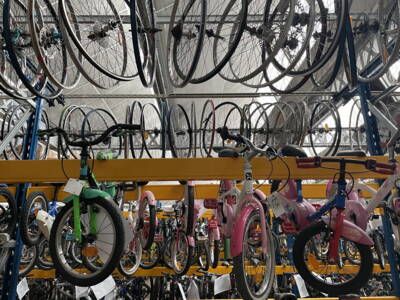
© Capital
– Second-hand bikes from Recycle-moi.
Building with second-hand materials
A little further on, the slabs, sanitary facilities, lighting fixtures, tiles and door handles of the Concrete blockthe second-hand building materials store launched by the Zerm architecture association. With one difficulty: manufacturers hesitate to use reused materials because of their liability in the event of a defect or accident. But practices are slowly evolving.
The proof, the BTP CFA of Hauts-de-Francewhich trains apprentices in building and public works professions, has also opened a branch in Tissel so that future professionals can familiarize themselves with these recycled materials. And, of course, Le Parpaing and BTP CFA have started a collaboration.
-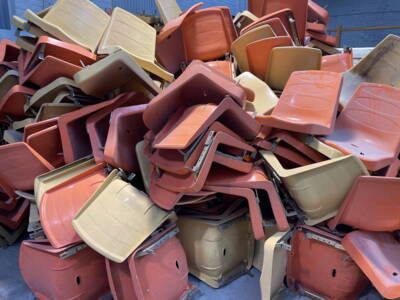
© Capital
– Le Parpaing is a second-hand building materials store.
Relocate part of textile production to Roubaix
From one workshop to another, we notice dark rectangles at regular intervals on the floor. “It is the weaving machines of yesteryear that have left these traces”explains Dimitri Broders, the project director of the third place. Because the site is full of history. In 1820 it hosted the first steam-powered weaving machine, then, in 1840, the first weaving and wool spinning factory in Roubaix, whose high chimney still dominates the roofs. Until recently, it still housed the Tissel sock brand which gave it its name.
New occupants are taking up the torch. This is the case of the sustainable knitting start-up The Three Knittersfounded in 2019 by three textile engineers, Sacha Motta, Alexandre Bianchi and Victor Legrain. She sells her brightly colored hats, sweaters and socks in organic cotton and merino wool made to order without any problem. So much so that after opening a workshop-bar four years ago, it was necessary to increase production capacities to cope with the influx of orders from clients like Promod, Damart and Cyrillus.
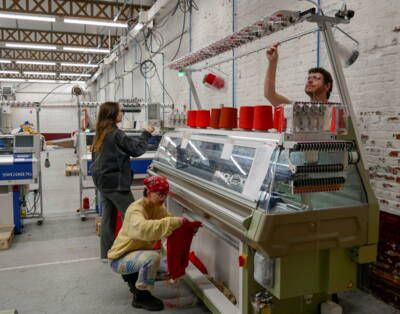
© Dimitri Broders/ Tissel
– The Three Knitters weave clothes in cotton or wool.
With 1 million euros in turnover, 17 jobs and profitability achieved in record time, the young company is a model for June makes flaxthe company launched last September by Augustin Deridder, also a young textile engineer. Amazed by the properties of linen and outraged that the majority of French production goes to Asia to be processed, he intends to promote this raw material locally. And dreams of making a place for itself in the sporting goods market with its 100% made in France knitted linen.
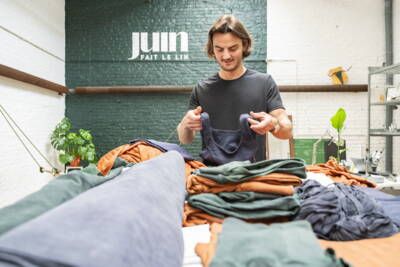
© Anaïs Gadeau/ City of Roubaix
– Augustin Deridder focuses on sportswear in knitted linen.
Certainly, these initiatives will not replace the tens of thousands of jobs lost in the sector since the 1970s. But they prove that it is possible to relocate part of textile production to Roubaix. It is also a sign that the town hall has not been promoting the circular economy to residents and businesses in vain for around ten years. Its efforts even led to the city being selected as a pilot site by the European Commission and joining the cooperation network Circular Cities and Regions Initiative in 2022. With support and assistance. In Roubaix, the new world is perhaps not just an address, after all.
Decathlon: what pushed the sports brand to convert to Made in France

